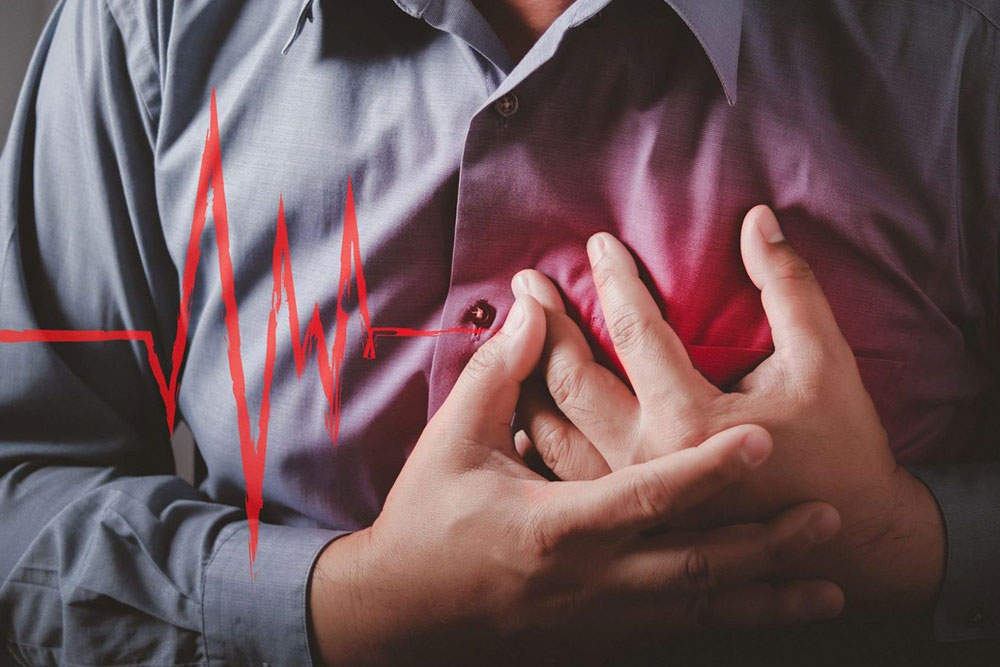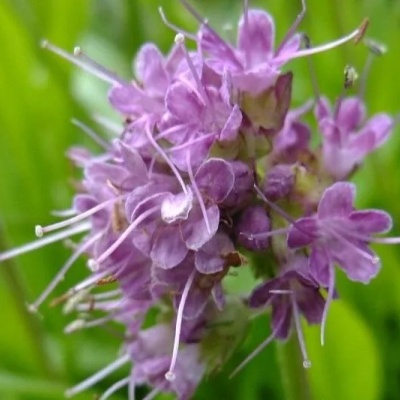- +033 2572 7171
- info@dhanvantary.com

4.5 Rating | 4500 Review

4.5 Rating | 4500 Review
Arrhythmia refers to any irregularity in the heart's rhythm, where the heart may beat too quickly (tachycardia), too slowly (bradycardia), or in an erratic pattern. Normally, the heart beats in a regular, rhythmic way to efficiently pump blood throughout the body. However, with an arrhythmia, this pattern is disrupted, impacting how blood and oxygen are circulated.

In Ayurveda, arrhythmia is often associated with an imbalance in the doshas, especially Vata dosha. Vata, responsible for movement in the body, controls the heartbeat rhythm. When aggravated, Vata can lead to erratic or irregular heart function, resulting in arrhythmias. This is referred to as Hridroga or heart diseases in Ayurveda texts.
Vata imbalance: Emotional stress, irregular diet, or excessive consumption of Vata-aggravating foods (e.g., cold, dry foods).
Heart-related issues: Conditions like coronary artery disease, heart attack, heart failure, or valve disorders.
Electrolyte imbalances: Low levels of essential minerals like potassium, magnesium, calcium, or sodium, which play a key role in heart function.
Hormonal imbalances: Changes in hormones, such as those caused by hyperthyroidism or hypothyroidism.
Alma (toxins): Poor digestion and accumulation of toxins can obstruct the channels (srotas) that control circulation and rhythm.
Lifestyle factors: High-stress environments, sedentary habits, lack of sleep, or inadequate physical activity can increase Vata.
Medications: Some medications, including beta-blockers and stimulants, can influence heart rhythm.
Other factors: Fever, dehydration, genetic factors, or sleep disorders like sleep apnoea.
Palpitations: Feeling of irregular heartbeats, fluttering, or pounding in the chest.
Dizziness or light-headedness: Due to insufficient blood flow to the brain.
Shortness of breath: Difficulty in breathing, especially during physical activity.
Chest pain or discomfort: A feeling of pressure or tightness in the chest.
Fainting or near-fainting: Caused by a sudden drop in blood pressure.
It’s important to note that some arrhythmias may not have noticeable symptoms, and they may only be detected during a routine check-up.
Arrhythmia of heart may be associated with some serious health risks:
Certain arrhythmias, especially atrial fibrillation, increase the risk of blood clots forming in the heart. These clots can travel to the brain, leading to a stroke.
If the heart's rhythm is abnormal for an extended period, it may not pump blood effectively. This can lead to heart failure, as the body and organs are deprived of adequate oxygen.
Severe arrhythmias, like ventricular fibrillation or ventricular tachycardia, can cause sudden cardiac arrest, which is often fatal if not treated immediately.
Abnormal rhythms can reduce blood flow to vital organs, leading to fatigue, dizziness, shortness of breath, or fainting spells.
Arrhythmias can worsen other heart conditions, like coronary artery disease or valvular heart disease. This can increase the overall strain on the heart.
Living with arrhythmia can lead to anxiety and affect quality of life, as people may fear sudden changes in heart rhythm and potential complications.

Known as a powerful cardio tonic, Arjuna is often used to strengthen heart muscles, improve circulation, and stabilize heart rhythm. Its antioxidants support heart health and help manage blood pressure.

Known for its sedative and anti-arrhythmic properties, Jatamansi is used to calm the mind and help reduce palpitation episodes.

This adaptogen is known to reduce stress and balance cortisol levels, which can indirectly help stabilize heart rhythms.

Traditionally used for respiratory and heart-related conditions, this herb is often recommended to strengthen the heart muscles and improve blood circulation.

Brahmi has calming effects and supports mental health, which can help relieve stress—a common trigger for arrhythmia.
Diet: Take foods like leafy greens, whole grains, nuts, seeds, and fresh fruits. Avoid overly spicy, salty, or fried foods, as they may increase stress on the heart.
Hydration: Proper hydration helps maintain electrolyte balance, which is essential for heart health. Warm water and herbal teas are preferred in Ayurveda.
Stress Reduction: Practicing yoga, pranayama (breath control exercises), and meditation daily can reduce stress and improve the balance of the doshas, particularly Vata dosha, which is often linked with irregularities in heart rhythms.
Sleep: Prioritizing restful sleep is crucial, as poor sleep can increase cortisol levels, which can in turn aggravate arrhythmia
Abhyanga (Oil Massage): A daily warm oil massage can help calm the nervous system, relieve stress, and balance Vata dosha.
Shirodhara (Oil Dripping Therapy): This therapy involves dripping oil onto the forehead to induce deep relaxation and balance mental and emotional states, which can be beneficial for stress-induced arrhythmia.
Nasya (Nasal Therapy): Administering medicinal oils through the nose is thought to help balance Vata dosha, promoting calm and focus.
